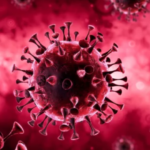There have been two study results published recently showing that in many cases, individuals do develop effective antibodies after an individual has a confirmed case of COVID-19.
On Nov. 2, a group of researchers out of the UK published preliminary results of a study showing that antibodies to the SARS-CoV-2 novel coronavirus that causes COVID-19 show that antibodies appear to last 6 months or longer. The study indicated the antibody response was stronger in those who had symptoms or a more severe infection.
The study included 100 people who previously tested positive for the coronavirus showed “robust T-cell responses” six months out.
On Nov. 5, researchers from several institutions — Cal Tech, the Icahn School of Medicine at Mt. Sinai, Cornell, Rockefeller University, and others–reported on a study of 87 individuals at 1.3 months and 6.2 months after they were infected. Researchers say that people who get exposed to the SARS-CoV-2 novel coronavirus a second time are showing a robust immune response, which they say would explain why very few people have been shown to have a second case of the virus.
The studies were published in bioRxiv (pronounced “bio-archive”), a free online archive and distribution service for unpublished preprints, not yet peer-reviewed, in the life sciences. It is operated by Cold Spring Harbor Laboratory, a not-for-profit research and educational institution. The archive notes that it is receiving many papers regarding COVID-19, and information should not be reported as established information. Those who publish the results of their studies in bioRxiv invite comments which may help them refine their work.
